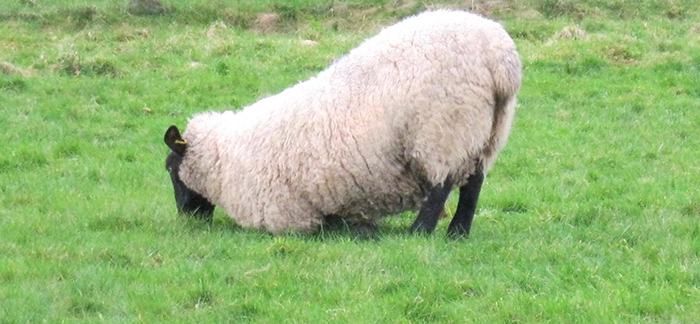Experts from the University of Nottingham have found, using sensing technology, that lame sheep adjust how they carry out certain actives, such as walking, standing or laying down, rather than simply reducing the amount they do.
In the first study of its kind, published today in the Journal of the Royal Society Open Science, a team of experts from the School of Veterinary Medicine and Science at the University of Nottingham have been able to demonstrate the automated detection of lameness in sheep when standing, lying and walking, using a new prototype tagging and monitoring system.
The technology was developed by Dr Jasmeet Kaler, associate professor in epidemiology and farm animal health from the University of Nottingham, along with Intel and agricultural software developer Farm Wizard.
Lameness is the biggest health and welfare problem on sheep farms, costing the sector around £80 million a year. More than 90% of farmers in the UK report lameness in their flocks, most of which is caused by foot rot – a bacterial infection. If spotted early enough, it can prevent the problem spreading in the flock.
The smart wearable technology consists of a sensing device worn on a sheep’s ear tag that gathers accelerometer and gyroscope data, effectively tracking the animal’s behaviour and movement and its way of walking. The algorithms are used to create different alerts for farmers.


